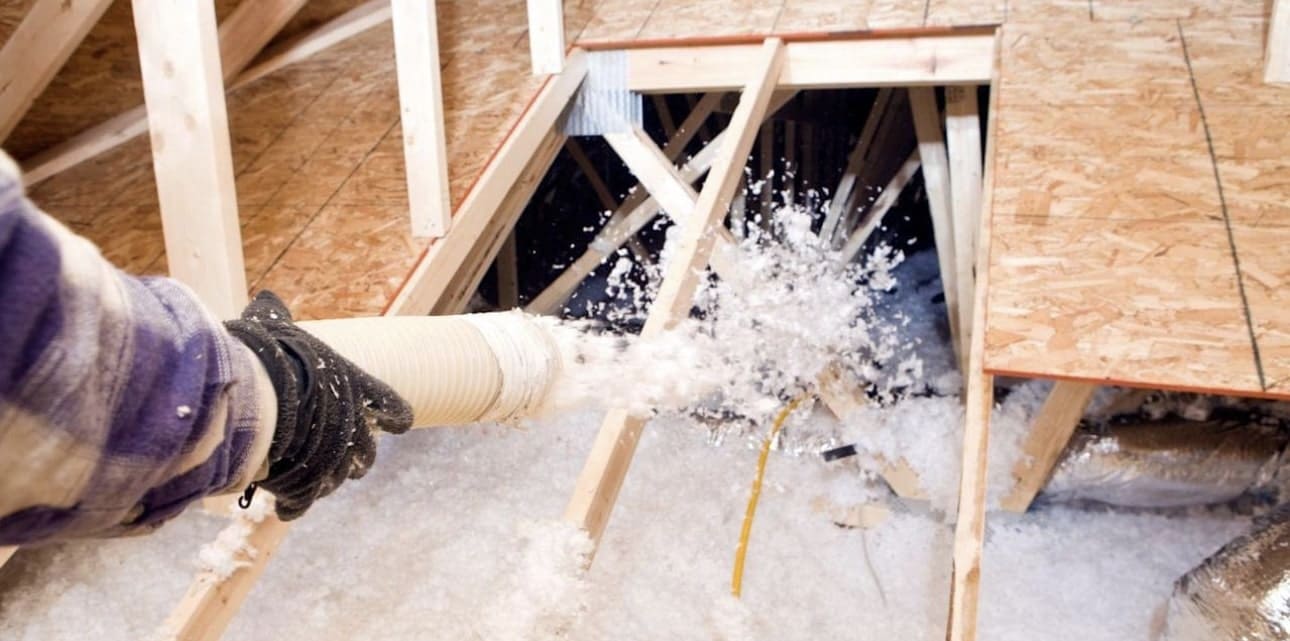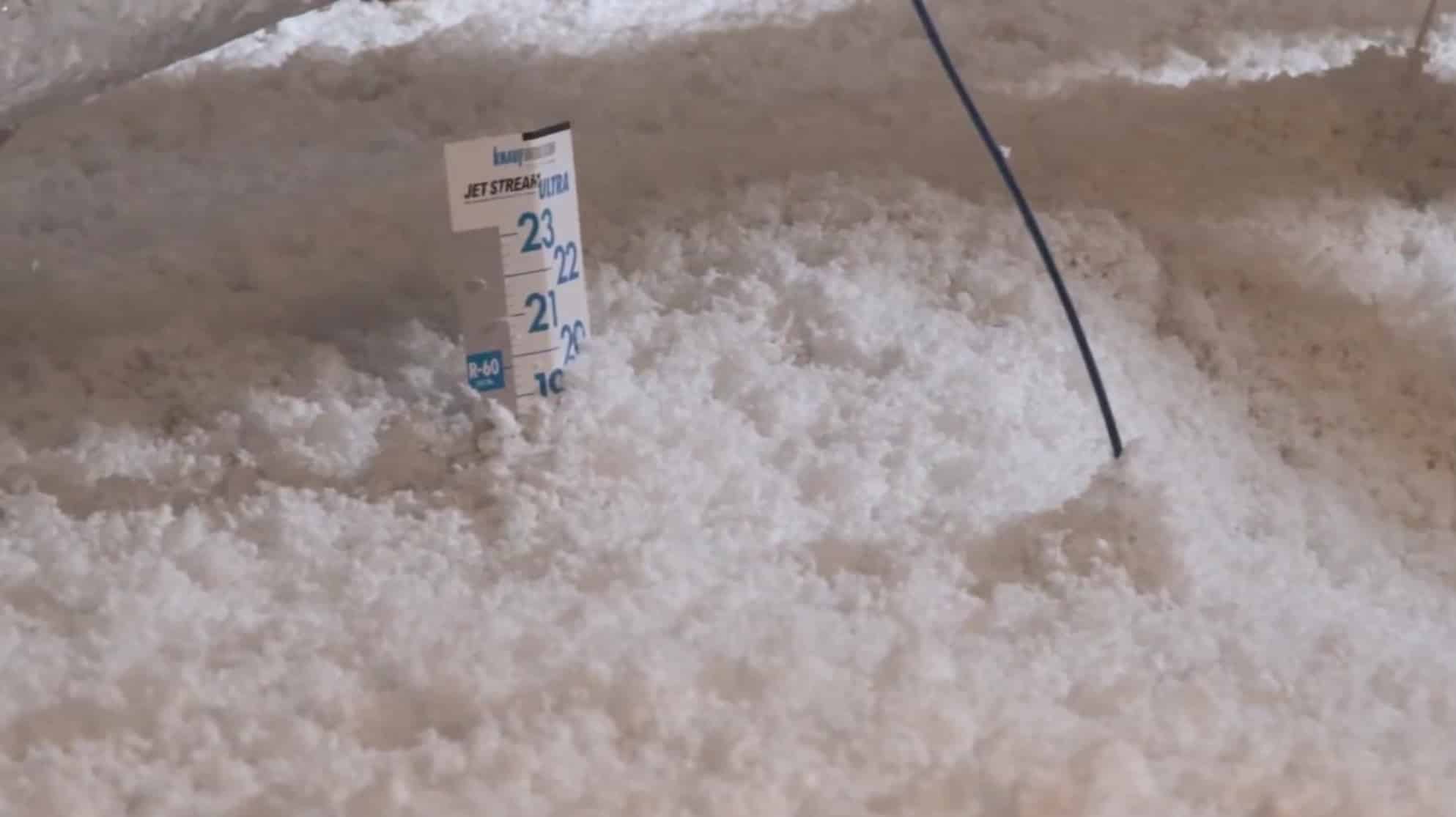A Biased View of Green Attics
A Biased View of Green Attics
Blog Article
More About Green Attics
Table of ContentsThe smart Trick of Green Attics That Nobody is DiscussingGreen Attics Can Be Fun For EveryoneHow Green Attics can Save You Time, Stress, and Money.The Definitive Guide for Green AtticsGetting The Green Attics To WorkSome Known Facts About Green Attics.
Published by Solution Champions Cooling BlogWhen you switch on your heating, you want it to stay inside your home - HVAC repair. Powering up the heating causes the warmth to rise directly up right into your attic. It's then up to your attic insulation to do its job and block the heat from running awayWhich attic room insulation is best? This write-up will outline the 4 types of attic room insulation you can choose from, plus dive into the pros and cons of each.

See This Report about Green Attics
Batts are huge, rolled up sheets of product which are integrated with each other with a chemical vapor. This vapor acts as a sticky. Why is fiberglass batt insulation so popular? It's lots of advantages include: As a whole, fiberglass is considerably green. The fiberglass itself is developed from sand which is after that turned right into glass, which counts as a renewable resource source.
Fiberglass batt insulation rarely shrinks or falls down. This is due to the air pockets that take place in production. Fiberglass batt insulation is additionally soundproof, assisting minimize outside sounds and keep interior audio inside the residential property.

4 Easy Facts About Green Attics Explained
If dampness is absorbed by the fiberglass batt insulation, it can breed hazardous mold and mildew. Rats and various other undesirable guests love fiberglass batt insulation, and commonly make it their home.
When using the blown-in method, it fills up the attic better, ensuring it's air-tight. Consequently, it fills up any fractures or gaps, even in unpleasant rooms. This decreases the amount of warm air escaping and cold air going into. It also traps sound. The blown-in distribution method is far quicker. It takes a matter of hours to get your attic room insulation up and running.
After the insulation has actually cleared up, it's proven that the R-Value reduces. It needs extra upkeep than various other sorts of attic insulation on our checklist. Must the insulation obtain damp, removing the insulation isn't as easy as eliminating fiberglass batts. You'll require to choose all of it up, while using handwear covers, and remove it gradually.
This attic room insulation is additionally blown-in making use of a blowing machine, nonetheless the material made use of is various. The material utilized below is cellulose. This is made from all various recycled product, consisting of things made out of wood, newspapers, and cardboard. Then, boric acid and various other materials are applied to flame-proof the attic insulation.
The 9-Second Trick For Green Attics
(https://pastebin.com/u/greenatt1cs)
Is blown-in cellulose insulation worth it? The boric acid and other materials help to flame proof the insulation and slow the spread of fires.
Blown-in cellulose insulation has an R-Value that is 23 percent greater than fiberglass batts. What are the disadvantages of installing blown-in cellulose insulation in your attic?
Fixing this circumstance can be labor and time extensive, as you'll require to pick up the insulation little bit by little bit, rather than in one roll. The final type of attic insulation is spray foam insulation.
A Biased View of Green Attics
Unlike all the other kinds of attic insulation, spray foam insulation is the only kind ahead as a liquid. After being splashed, it enlarges and grows, and after that establishes as a resilient foam. This foam slides neatly right into any gaps, locking closed, and cuts off any type of getaway paths for your heating.
Lastly, what are the negative aspects of spray foam insulation?: The upfront repayment for spray foam blog here insulation is greater than the various other types of attic room insulation on our listing. But, it's worth considering that, due to high levels of energy performance, it'll likely stabilize out or even become more affordable in the long-run to keep your home warm.

The Main Principles Of Green Attics
Fantastic treatment needs to be taken around the foam, and you'll need to wear goggles, a mask, and a respirator. With 4 sorts of attic insulation and their benefits and drawbacks, you're now able to make an informed choice, recognizing the benefits and negative aspects to every. If you want professional advice, do not think twice to call Solution Champions.?.!!. Like a great deal of individuals, my renovation job is driven greatly by my budget plan. Likewise, I seek straightforward settings up that yield strong, proven efficiency. That's why I can claim with confidence that the best means to insulate my attic room is with cost-effective cellulose or fiberglass insulation applied over a closed attic floor. Spray foam insulation.
Report this page